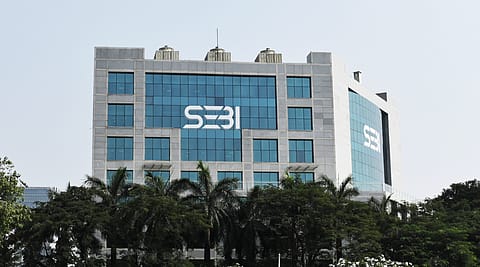Sebi drops proposal to cut retail quota in large IPOs, retains 35% allocation
In a consultation paper dated July 31, 2025, the market regulator had suggested cutting the retail quota in IPOs from 35% to 25% for issues exceeding ₹5,000 crore.

The Securities and Exchange Board of India (Sebi) has decided to retain the retail investor quota in big-ticket initial public offerings (IPOs) at 35%, withdrawing its earlier proposal to reduce it to 25% for issues exceeding ₹5,000 crore.
In a consultation paper dated July 31, 2025, the capital markets regulator had suggested cutting the retail allocation, citing the challenges faced by issuers in executing large IPOs. The move had sparked feedback from various stakeholders, prompting Sebi to revisit the proposal.
“It is proposed that the retail quota in IPO allocations be retained at 35%, in line with the Regulation 32 of SEBI (ICDR) Regulations, 2018 and accordingly, consultation paper dated July 31, 2025, may be considered as modified to that extent,” the regulator notified in a consultation paper released on August 18.
The regulator had earlier proposed a reduction in the retail portion to a minimum of 25% in a staggered manner, especially in very large deals where full retail subscription becomes difficult. It had suggested increasing the quota reserved for QIBs (qualified institutional buyers) from the existing 50% to 60% to ensure demand stability and enhance issuer confidence in volatile or clustered market conditions.
The Sebi said that decision was taken after reviewing the responses and examining alternative measures. The regulator believed that the challenges highlighted earlier would be better addressed by revising the minimum public offer (MPO) requirements for large issuers, rather than cutting into the retail quota.
The decision comes as part of the Sebi’s broader efforts to simplify fundraising norms while ensuring retail investors continue to have meaningful participation in India’s capital markets.
The regulator has floated a consultation paper seeking public feedback on proposed relaxations in MPO requirements and timelines for achieving minimum public shareholding (MPS) for large companies.
For issuers with a market capitalisation above ₹50,000 crore but up to ₹1 lakh crore, the MPO threshold is proposed to be revised to ₹1,000 crore and at least 8% of post-issue capital, with five years allowed to achieve 25% MPS.
For companies valued above ₹1 lakh crore and up to ₹5 lakh crore, Sebi has suggested an MPO of ₹6,250 crore and at least 2.75% of post-issue capital, with 5-10 years to meet MPS depending on the initial public float. For the largest firms exceeding ₹5 lakh crore in market capitalisation, the minimum public offer could be set at ₹15,000 crore and at least 1% of post-issue capital, subject to a minimum 2.5% dilution.
Currently, big-ticket IPOs with a post-issue market capitalisation above ₹1 lakh crore are required to make a minimum public offer of ₹5,000 crore and at least 5% of their post-issue capital. It is mandatory for large issues to raise public shareholding to 10% within two years and to 25% within five years of listing.